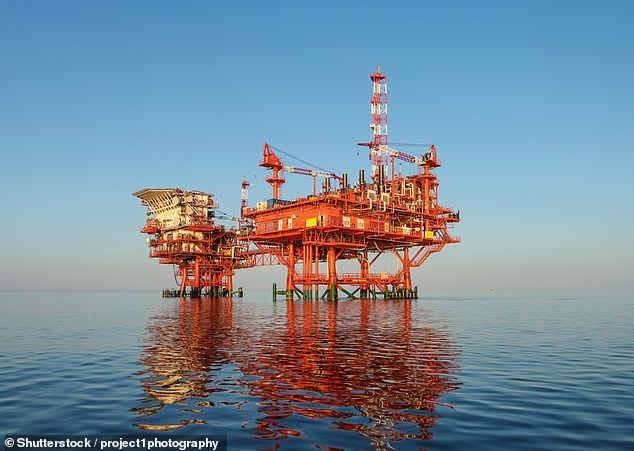More than £21bn of North Sea oil and gas projects risk being scrapped by the mid-2030s if Labor raises taxes, analysts say.
There has been an outcry in the industry since Sir Keir Starmer’s opposition party promised an “adequate windfall tax” in the North Sea that would increase the current rate from 75 per cent to 78 per cent.
The Labor Party also indicated it could scrap schemes that encourage investment while the windfall tax is in place.
Companies say they have slowed spending or even canceled deals because of the uncertainty.
According to estimates by investment bank Stifel, there are more than 30 projects worth between £200m and £3.4bn that would be “uneconomical” (or no longer worth it) if taxes were raised and temporary reliefs were removed. This could also lead to the loss of tens of thousands of jobs.
Hard blow: There have been protests in the industry since Sir Keir Starmer’s opposition party promised an “adequate windfall tax” in the North Sea.
Christopher Wheaton, oil and gas manager at Stifel, said: “UK North Sea investment is at risk because existing windfall taxes have already significantly affected the economics of UK investment, and “Further tax increases will push the industry over the edge.” ‘ He added that getting rid of investment subsidies, which allow companies to offset taxes by investing more money in the sector, creates a “billion-pound paradox” that would ultimately starve the Treasury of cash.
“If implemented, this would actually reduce overall UK tax revenue – by £20 billion or more – because it would wipe out investment, and UK North Sea oil and gas production would fall by almost 50 percent. percent by 2029, so there will be many fewer barrels to be taxed,” he stated. The windfall tax on profits made in the UK was introduced by then-chancellor Rishi Sunak in May 2022 after oil and gas prices soared following the Russian invasion of Ukraine.
The tax was due to end at the end of 2025, but has since been extended until 2029.
Kistos Energy boss Andrew Austin said the region had already become a “hostile environment” under the Conservative government and the industry was being seen as the “devil incarnate”. “What we see is that all investments in this space are being canceled because until there is confidence in what is happening with the new Government, of whatever color, no one wants to spend money.”
A spokesperson for the Department of Energy and Net Zero said: ‘No one is more supportive of the UK oil and gas industry than this Government. Instead, Keir Starmer’s reckless plans to turn off the taps too soon would send 200,000 good jobs overseas and decimate communities. The industry warns that Labour’s energy policy would make the UK “uninvestable” and sacrifice £450bn of investment.
A Labor spokesman said: “Closing the windfall tax loopholes will allow Britain to invest in cheap, home-grown British energy in the future.”
They added that once the windfall tax ends, the UK will be able to “make use” of existing fields in the North Sea.

